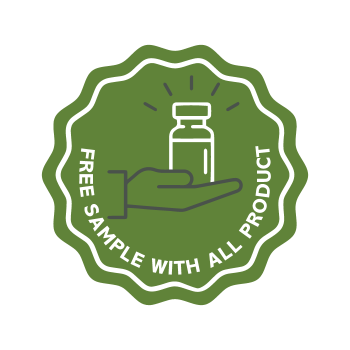Cannabinoid Receptors
Cannabinoid receptors play a crucial role in how the body processes cannabinoids like CBD and THC, influencing functions such as mood, pain, and immunity. These receptors are part of the endocannabinoid system (ECS), a complex cell-signaling system that maintains balance in the body. The two primary cannabinoid receptors, CB1 and CB2, interact with cannabinoids to trigger physiological responses. When cannabinoids bind to these receptors, they can help regulate various functions, making them essential for understanding how cannabinoids affect the body.
What are Cannabinoid Receptors and How Do They Work?
Cannabinoid receptors are proteins within the ECS that respond to cannabinoids, influencing many body functions. CB1 receptors are primarily found in the brain and central nervous system and are linked to mood, appetite, and pain. When THC binds to CB1 receptors, it creates a psychoactive “high.” In contrast, CB2 receptors are located in the immune system and peripheral organs, where they help manage inflammation and immune response. This interaction with cannabinoids, whether natural (like endocannabinoids) or plant-derived (like THC and CBD), helps maintain homeostasis, the body’s internal balance.
The ECS’s impact on health and wellness is why cannabinoids are so widely researched for therapeutic uses. To understand how cannabinoids interact with CB1 and CB2 receptors, this resource on endocannabinoid receptors provides valuable insights. Understanding these receptors can help guide users in choosing the right cannabinoids for their wellness goals.
Types of Cannabinoid Receptors and Their Functions
-
CB1 Receptors: Found mainly in the brain and central nervous system, CB1 receptors regulate functions like mood, memory, and pain perception. THC primarily binds to CB1 receptors, creating the psychoactive effects associated with cannabis.
-
CB2 Receptors: Located mainly in the immune system, CB2 receptors help control inflammation and immune responses. CBD interacts with CB2 receptors indirectly, often providing anti-inflammatory effects without causing a high.
-
Additional Receptors: Research has identified potential cannabinoid-related receptors, such as GPR55 and TRPV1, which may influence functions like bone health and inflammation.
How Cannabinoid Receptors Affect the Body
When cannabinoids interact with CB1 and CB2 receptors, they initiate responses in the body that can influence health and wellness. For instance, THC binding to CB1 receptors in the brain is what causes its psychoactive effects, along with potential pain relief and appetite stimulation. CBD’s interaction with CB2 receptors offers non-psychoactive benefits, such as reducing inflammation and promoting relaxation, making it popular for wellness routines. By influencing the ECS through these receptors, cannabinoids can help the body manage stress, pain, and inflammation, contributing to overall balance.
The varied roles of CB1 and CB2 receptors also explain why certain cannabinoids work better for specific health needs. THC’s direct interaction with CB1 receptors makes it effective for conditions involving pain and nausea, while CBD’s effects on CB2 receptors make it a popular choice for inflammation and anxiety management. If you’re exploring the therapeutic potential of cannabinoids, the ECS’s impact on health is well-documented and can provide a foundation for understanding how cannabinoid products may support wellness goals.
Benefits and Uses of Cannabinoid Receptors
The activation of CB1 and CB2 receptors by cannabinoids has led to their use in various wellness applications:
- Pain Management: THC binds to CB1 receptors in the brain, reducing pain perception and making it popular among users seeking natural pain relief.
- Mood and Anxiety Regulation: CB1 receptors can help reduce anxiety and improve mood, while CBD’s action on CB2 receptors can promote relaxation without psychoactivity.
- Anti-Inflammatory Effects: CB2 receptors in immune cells regulate inflammation, allowing cannabinoids like CBD to offer potential relief from inflammation-related issues.
- Appetite Stimulation: THC’s interaction with CB1 receptors increases appetite, helpful for individuals requiring nutritional support.
- Sleep Aid: Activation of CB1 receptors helps regulate sleep cycles, allowing cannabinoids like THC and CBN to promote restful sleep.
Related Terms
- Endocannabinoid System (ECS): The internal system of receptors and enzymes, including CB1 and CB2, that help maintain body balance and respond to cannabinoids.
- Homeostasis: The body’s state of balance, maintained by systems like the ECS to regulate mood, immunity, and metabolism.
- Entourage Effect: The synergistic effect where multiple cannabinoids work together to enhance therapeutic outcomes.
Frequently Asked Questions about Cannabinoid Receptors
How do CB1 and CB2 receptors differ?
CB1 receptors are primarily in the brain and control mood, appetite, and pain, while CB2 receptors are in immune cells and influence inflammation and immune function.
Do cannabinoids affect receptors other than CB1 and CB2?
Yes, research suggests that other receptors, like GPR55 and TRPV1, may also interact with cannabinoids, expanding their potential effects on the body.
Can activating CB1 and CB2 receptors help with daily wellness?
Yes, activating CB1 and CB2 receptors with cannabinoids can support daily wellness. CBD’s action on CB2 receptors can promote relaxation, while THC’s interaction with CB1 receptors offers additional therapeutic benefits.
Discover Cannabinoid Products at Pharmabinoid
Pharmabinoid provides high-quality cannabinoid products designed to interact effectively with CB1 and CB2 receptors for comprehensive wellness support. Whether you seek the relaxing effects of CBD or the balanced benefits of full-spectrum products, explore Pharmabinoid’s range of cannabinoid options to enhance your wellness routine.

Free Sample
Discover the benefits of our products firsthand by visiting our website to obtain your exclusive TryPharma code. When you place an order using this special code, not only will you secure your desired products, but we will also include a complimentary sample with each purchase. This opportunity allows you to experience the quality of our offerings before you commit to the main shipment. Our goal is to ensure that you are completely satisfied with your selection, and this process provides a risk-free way to explore our extensive range of products. Contact us today to get started and take the first step towards a rewarding experience with our premium offerings.

Shipping Insurance
When you purchase bulk CBD isolates, oils, and other products from us, your shipment is fully insured by us at no additional cost to you. We utilize reputable shipping companies like FedEx and UPS for transportation, while managing the insurance coverage ourselves to secure every shipment from our warehouse to your doorstep. At TryPharma, we are committed to fostering business growth by offering a risk-free wholesale service. In the unlikely event of a shipping issue, we guarantee a refund within five business days from the date the incident is confirmed. Our comprehensive approach effectively eliminates 99.9% of all potential risks associated with bulk CBD shipping, ensuring your complete peace of mind.

30 Day Return
We invite you to test the complimentary sample included with your order before opening the main shipment. If the quality does not meet your expectations, you can benefit from our 30-day return policy. This policy permits you to return the product within 30 days for a full refund, guaranteeing your complete satisfaction. Contact us today to explore our exceptional range of products and experience our dedicated customer service.
Cannabinoid Isolates
-
CBD Isolate - Cannabidiol
Regular price From €24.99 to €369.99Regular priceUnit price / per€0.00Sale price €24.99 -
CBG - Cannabigerol
Regular price From €49.99 to €799.99Regular priceUnit price / per€0.00Sale price €49.99 -
CBN - Cannabinol
Regular price From €79.99 to €1,299.99Regular priceUnit price / per€0.00Sale price €79.99 -
CBC - Cannabichromene
Regular price From €99.99 to €1,999.99Regular priceUnit price / per€0.00Sale price €99.99 -
CBDV - Cannabidivarin
Regular price From €13.99 to €3,499.99Regular priceUnit price / per€0.00Sale price €13.99 -
Cannabicitran Isolate - CBT
Regular price From €49.99 to €4,349.99Regular priceUnit price / per€0.00Sale price €49.99 -
Cannabidiolic Acid - CBDA
Regular price From €49.99 to €1,499.99Regular priceUnit price / per€0.00Sale price €49.99 -
Cannabigerolic Acid - CBGA
Regular price From €59.99 to €1,749.99Regular priceUnit price / per€0.00Sale price €59.99
Collections
-

Psychoactive Extracts
Unlocking the Potential of Psychoactive Extracts and Liquid Cannabis in the EU...
-

CBD Oil Wholesale Europe
At Pharmabinoid we are dedicated to showing the sanative possibilities of cannabinoids...
-

CBD Cosmetics
In the past years, we have developed different CBD and other cannabinoid...
-

CBD Distillates
Positive Points About CBD Distillates A CBD distillate is a product that...
Blog posts
View all-

"D9-THCB Wholesale: Navigating Opportunities an...
In the ever-evolving landscape of the cannabis industry, D9-THCB wholesale has stirred interest among European distributors seeking to cater to a growing customer base interested in novel cannabinoids. This interest...
"D9-THCB Wholesale: Navigating Opportunities an...
In the ever-evolving landscape of the cannabis industry, D9-THCB wholesale has stirred interest among European distributors seeking to cater to a growing customer base interested in novel cannabinoids. This interest...
-

"D9-THCH Wholesale: Unlocking Opportunities in ...
In the ever-evolving world of cannabinoids, the focus on D9-THCH Wholesale has piqued the interest of many in the industry. This lesser-known compound, Delta-9-THCH, mirrors some characteristics of THC but...
"D9-THCH Wholesale: Unlocking Opportunities in ...
In the ever-evolving world of cannabinoids, the focus on D9-THCH Wholesale has piqued the interest of many in the industry. This lesser-known compound, Delta-9-THCH, mirrors some characteristics of THC but...
-

"Exploring Opportunities in D9-THCPO Wholesale:...
In the world of cannabinoids, staying ahead with emerging compounds can be a game-changer. D9-THCPO wholesale opportunities have attracted significant attention from distributors and manufacturers alike. But why this sudden...
"Exploring Opportunities in D9-THCPO Wholesale:...
In the world of cannabinoids, staying ahead with emerging compounds can be a game-changer. D9-THCPO wholesale opportunities have attracted significant attention from distributors and manufacturers alike. But why this sudden...









